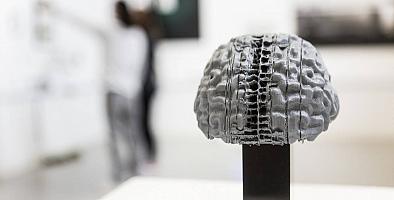Teaching staff on the programme
Dr Diana Omigie, Director of the MSc in Music, Mind and Brain programme
Research interests: Music cognition, Music and emotion, Aesthetic experience of music, Neuroimaging
Dr Daniel Müllensiefen, Co-Director of the MSc in Music, Mind and Brain programme
Research interests: Measurement and Development of Musical Skills and Expertise, Musical Memory, Similarity Perception, Computational Modelling of Music Cognition
Dr. Guido Orgs, Lecturer in Psychology
Research interests: Action and body perception, Neuroaesthetics of Dance and the Performing Arts, Joint Action, Movement-based interventions
Professor Lauren Stewart, Professor of Psychology
Research interests: Congenital Amusia, Learning and Expertise, Neuroimaging
Professor Pam Heaton, Professor of Psychology
Research interests: Musical cognition, abnormal development, autism, savants
Professor Joydeep Bhattacharya, Professor of Psychology
Research interests: Neuronal Synchrony and Cross-Modality of Music Perception, EEG
Dr. Devin Terhune, Associate Lecturer
Research interests: Metacognition, Consciousness, Mind Wandering, Synaesthesia, Cognitive control
Eminent invited speakers (since 2008)
- Dr Joyce Chen, Deptartment of Experimental Psychology, University of Oxford
- Professor Stephen Clift, Professor of Health Education, Research Director of the Sidney de Haan Research Centre, Canterbury Christ Church University
- Professor Annabel J. Cohen, Director of the Auditory Perception & Music Cognition Research & Training Laboratory, University of Prince Edward Island, Canada
- Professor Ian Cross, Director of the Centre for Music and Science, University of Cambridge
- Dr Simon Durrant, Research Associate, Neuroscience and Aphasia Research Unit, Manchester University
- Jamie Forth, Research Fellow, Department of Computing, Goldsmiths, University of London
- Robert Fulford, Royal Northern College of Music, Manchester
- Dr Shinichi Furuya, Institute for Music Physiology and Musicians´ Medicine, Hannover University of Music, Drama and Media
- Dr Bruno Gingras, Research Fellow, Department of Computing, Goldsmiths, University of London
- Dr Jessica Grahn, Research Fellow, MRC Cognition and Brain Sciences Unit, University of Cambridge
- Dr Alinka Greasley, Lecturer in Music, University of Leeds
- Dr Mick Grierson, Lecturer, department of Computing, Goldsmiths, University of London
- Dr Manon Grube, Research Associate, Institute of Neuroscience, Newcastle University
- Professor Andrea R Halpern, Professor of Psychology, Bucknell University, USA
- Professor David Hargreaves, Professor of Education, University of Roehampton
- Professor David Huron: Professor of Music and Head of the Cognitive and Systematic Musicology Lab, University of Ohio, USA
- Dr Stefan Koelsch, Associate Professor, Department of Psychology, University of Sussex
- Dr Alexandra Lamont, Senior Lecturer, School of Psychology, Keele University
- Professor Raymond MacDonald, Professor of Music Psychology, Glasgow Caledonion Institute
- Dr Karen Mattock, Department of Psychology, Lancaster University
- Dr Matthias Mauch, Royal Academy Research Fellow at Queen Mary, University of London
- Dr Josh McDermott - Research Associate, Center for Neural Science & Howard Hughes Medical Institute, New York University.
- Prof Steven Mithen, Professor of Archeology, University of Reading
- Dr Iain Morley, Lecturer in Palaeoanthropology and Human Sciences, and a Fellow of St Hugh's College
- Professor Adam Ockelford, Professor of Education, Roehampton University
- Rohani Omar, Clinical Research Fellow at the Dementia Research Centre, Queen Square
- Professor Larry Parsons, Professor of Psychology, University of Sheffield
- Michelle Phillips, Faculty of Music, University of Cambridge
- Dr Helen Prior, Music Department, Kings's College London
- Dr Katrin Schulze, Research Fellow, Institute of Child Health, University College, London
- Professor John Sloboda, Emeritus Professor, School of Psychology, University of Keele
- Dr Neta Spiro, Lecturer, Centre for Music and Science, University of Cambridge
- Dr Renee Timmers, Lecturer in Music Psychology, University of Sheffield
- Dr Martine Turgeon, Lecturer, Department of Psychology, Lancaster University
- Dr Peter Vuust, Assistant Professor, Aarhus University and Royal Academy of Music
- Professor Aaron Williamon, Centre for Performance Science, Royal College of Music, London
Guest lecturers (since 2008)
- Dori Berger, Music Therapist
- Toni Brennan, Visting Tutor, Department of Psychology, University of East London
- Dr Gianna Cochini, Lecturer in Neuropsychology, Department of Psychology, Goldsmiths, University of London
- Dr Bruno Gingras, Research Fellow, Department of Computing, Goldsmiths, University of London
- Professor John Gruzelier, Profesorial Research Fellow, Department of Psychology, Goldsmiths, University of London
- Dr Elisabeth Hill, Senior Lecturer, Department of Psychology, Goldsmiths, University of London
- Dr Alice Jones, Lecturer, Department of Psychology, Goldsmiths, University of London
- Mats Küssner, Music Department, King's College, University of London
- Joseph Leach, Research Assistant, Department of Psychology, Goldsmiths, University of London
- Dr Chris Lee, Visiting Lecturer at the Department of Psychology, Goldsmiths, University of London
- Dr Wendy Magee, International Fellow in Music Therapy, Royal Hospital for Neuro-disability, London
- Manuela Marin, Research Associate, Department of Psychology, Goldsmiths, University of London
- Dr Marcus Pearce, Research Fellow, Department of Computing, Goldsmiths, University of London
- Dr Karin Rosenkranz, Department of Clinical and Experimental Epilepsy, Institue of Neurology, University College, London
- Professor Joseph Sanders, Professor of Oboe, Guildhall School of Music
- Dr Mirjam James Schlemmer, Research Centre for Musical Performance as Creative Practice
- Dr Jose van Velzen, Lecturer, Department of Psychology, Goldsmiths, University of London
- Dr Jason Warren, Institute of Neurology, National Hospital of Neurology and Neurosurgery
- Professor Graham Welch, Chair of Music Education, Institute of Education, University of London
- Professor Aaron Williamson, Centre for Performance Science, Royal College of Music, London




